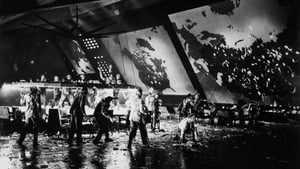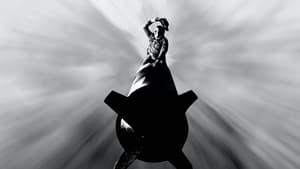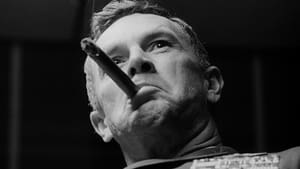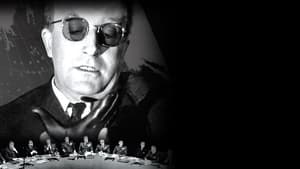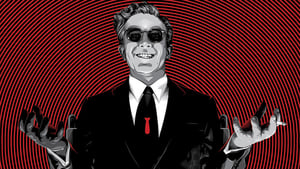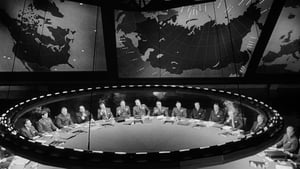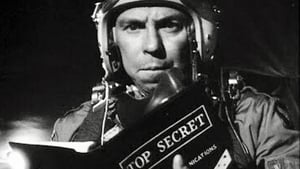Contact: info@alwanfilm.com
Video Sources 0 Views
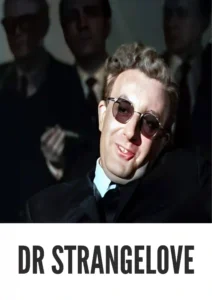
Synopsis
Dr. Strangelove 1964 Colorized: A Satirical Masterpiece Ahead of Its Time

Introduction
“Dr. Strangelove 1964” emerges as a satirical tour de force that deftly skewers the absurdities of Cold War politics and nuclear brinkmanship. Directed by Stanley Kubrick and based on the novel “Red Alert” by Peter George, this dark comedy takes viewers on a wild and irreverent journey into the heart of geopolitical madness, where incompetence, paranoia, and absurdity reign supreme. As we delve into the depths of this cinematic gem, we unravel its enduring relevance and timeless message about the perils of unchecked power and the folly of human folly.
Check The Full Colorized Movies List
Check Our Colorized Movies Trailer Channel
The Artistry of Dr. Strangelove 1964 Colorized
Kubrick’s Directorial Genius
At the helm of “Dr. Strangelove” is the visionary director Stanley Kubrick, whose masterful command of tone and pacing elevates the film to new heights of cinematic brilliance. Drawing on his background in photography and visual arts, Kubrick brings a keen eye for composition and detail to every frame, immersing viewers in a world that is at once surreal and unsettling. Through his innovative use of camera angles, editing techniques, and atmospheric lighting, Kubrick creates a cinematic experience that is as thought-provoking as it is entertaining.
Iconic Performances
Central to the film’s impact are the iconic performances of its ensemble cast, led by the incomparable Peter Sellers in multiple roles. Sellers shines as the bumbling President Merkin Muffley, the sinister Dr. Strangelove, and the hapless Group Captain Lionel Mandrake, imbuing each character with depth, nuance, and comedic flair. From George C. Scott’s bombastic General Buck Turgidson to Slim Pickens’ iconic Major Kong, every member of the cast delivers a memorable performance that adds to the film’s irreverent charm and biting satire.
Revisiting the Storytelling Mastery: Plot and Themes
A Tale of Nuclear Madness
“Dr. Strangelove” unfolds as a darkly comedic exploration of nuclear brinkmanship and political paranoia during the height of the Cold War. Set against the backdrop of a looming nuclear apocalypse, the film follows a series of absurd events triggered by a rogue American general’s unauthorized order to launch a nuclear strike against the Soviet Union. As the clock ticks down to Armageddon, a motley crew of politicians, military officers, and bureaucrats scramble to avert disaster, with hilariously disastrous results.
The Absurdity of War
At the heart of “Dr. Strangelove” is the theme of the absurdity of war, as the characters grapple with the catastrophic consequences of their own incompetence and folly. Through its biting satire and dark humor, the film exposes the absurdities of Cold War politics and the dangers of unchecked power, while offering a sobering commentary on the human capacity for self-destruction. As the characters stumble from one absurd crisis to the next, “Dr. Strangelove” serves as a cautionary tale about the perils of hubris and the folly of human nature.
The Dynamic Relationship Between Muffley and Strangelove
A Study in Contrasts
“Dr. Strangelove” delves into the complex and often absurd relationship between President Muffley and Dr. Strangelove, whose contrasting personalities and ideologies drive the film’s narrative forward. While Muffley represents the voice of reason and restraint, Strangelove embodies the madness and paranoia of the nuclear age, offering outlandish solutions to the crisis that only serve to exacerbate the situation. Through their interactions and ideological clashes, the characters personify the absurdity of Cold War politics and the dangerous consequences of unchecked power.
The Thin Line Between Comedy and Tragedy
Central to the film’s narrative is the thin line between comedy and tragedy, as “Dr. Strangelove” navigates the murky waters of dark humor and existential dread with razor-sharp precision. From its absurd scenarios to its larger-than-life characters, the film walks a fine line between hilarity and horror, inviting viewers to laugh at the absurdity of nuclear brinkmanship while confronting the terrifying reality of global annihilation. Through its blend of comedy and tragedy, “Dr. Strangelove” offers a provocative meditation on the human condition and the fragility of civilization in the face of existential threats.
A Visual and Technical Achievement
Cinematic Innovation
Shot in black and white and featuring striking visual effects, “Dr. Strangelove” is a testament to Kubrick’s technical prowess and artistic vision. From its iconic War Room set to its breathtaking aerial sequences, every aspect of the film is crafted with meticulous attention to detail and visual flair. Through its innovative cinematography and immersive sound design, the film creates a sense of urgency and intensity that keeps audiences on the edge of their seats from start to finish.
Early Colored Films Version
In a departure from convention, the filmmakers behind “Dr. Strangelove” experimented with an early colored films version of the movie, offering audiences a new perspective on its timeless narrative. This innovative approach to colorization adds depth and richness to the film’s visuals, enhancing its already surreal aesthetic and elevating the overall viewing experience.
Behind the Scenes of Dr. Strangelove 1964 Colorized
Kubrick’s Artistic Process
Behind the camera, Stanley Kubrick worked tirelessly to bring “Dr. Strangelove” to life with authenticity and integrity. From the meticulous casting of the actors to the innovative set design and atmospheric lighting, every aspect of the production was crafted with meticulous care and attention to detail. Kubrick’s uncompromising commitment to artistic vision and cinematic innovation shines through in every frame, as he transports viewers to a world of absurdity and existential dread with breathtaking authenticity.
Collaborative Creativity
One of the most remarkable aspects of “Dr. Strangelove” is the collaborative spirit that infused every aspect of its creation. From the dedicated performances of the cast to the innovative contributions of the production crew, each member of the team played a vital role in bringing Kubrick’s vision to life. Through their collective efforts, they created a cinematic masterpiece that continues to captivate and inspire audiences around the world.
Legacy and Influence on Cinema
Critical Acclaim and Cultural Impact
Upon its release, “Dr. Strangelove” received widespread critical acclaim, with particular praise for its biting satire, innovative storytelling, and iconic performances. Over the years, the film has attained legendary status among cinephiles and scholars alike, inspiring countless filmmakers to explore the boundaries of cinematic expression and challenge the conventions of traditional narrative filmmaking. Its enduring legacy serves as a testament to the power of satire to provoke thought and stimulate debate on the pressing issues of the day.
Inspiring Future Generations
“Dr. Strangelove” has left an indelible mark on the world of cinema, inspiring filmmakers and audiences alike to appreciate the power of satire in challenging the status quo and confronting the absurdities of human nature. Its enduring relevance serves as a stark reminder of the dangers of nuclear proliferation and the folly of human folly, while offering a scathing commentary on the absurdities of Cold War politics and the dangers of unchecked power.
Where to Watch Dr. Strangelove 1964 Colorized?
For those eager to experience the satirical brilliance of “Dr. Strangelove” in its entirety, the film is readily available on various streaming platforms and home video releases. Whether you’re a fan of dark comedy or simply seeking a thought-provoking and visually stunning cinematic experience, “Dr. Strangelove” promises a viewing experience unlike any other—a journey into the heart of absurdity, paranoia, and human folly.
In Conclusion
“Dr. Strangelove 1964” stands as a timeless testament to the power of satire to provoke thought and stimulate debate on the pressing issues of the day. With its biting wit, innovative storytelling, and iconic performances, the film continues to captivate and inspire audiences around the world, inviting them to laugh at the absurdities of human nature while confronting the terrifying realities of nuclear brinkmanship. As we revisit this cinematic masterpiece, let us celebrate its enduring legacy and appreciate its timeless relevance in an ever-changing world.

